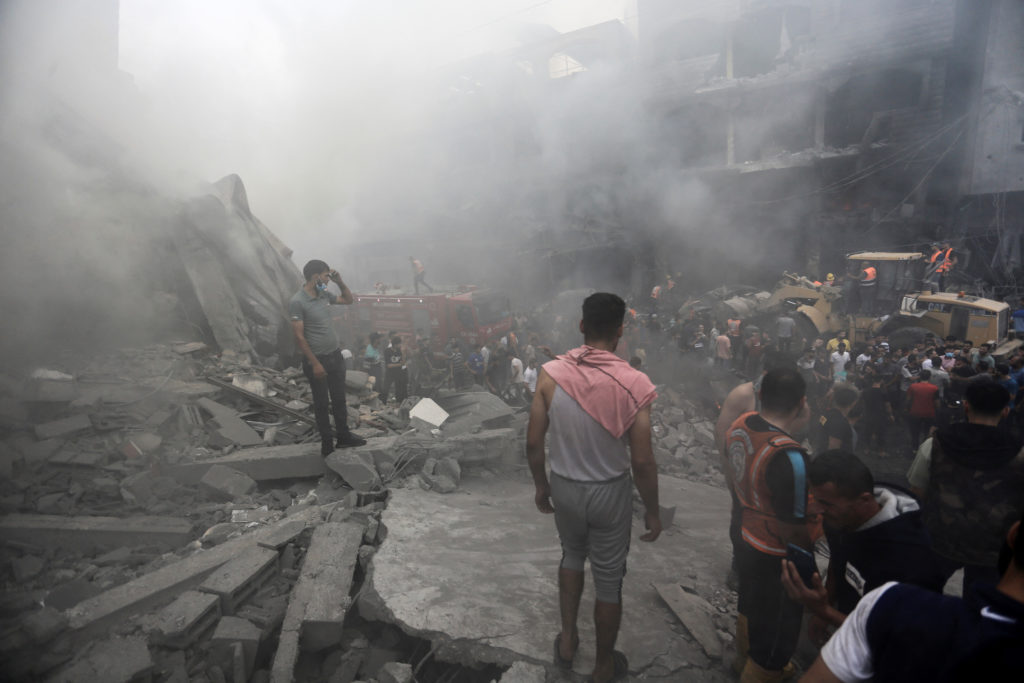A senior Hamas figure has told the BBC that the group is likely to reject Donald Trump's peace plan for Gaza, saying it 'serves Israel's interests' and 'ignores those of the Palestinian people'.
The figure said that Hamas is unlikely to agree to disarming and handing over their weapons - a key condition of Trump's plan.
Hamas is also said to object to the deployment of an International Stabilisation Force (ISF) in Gaza, which it views as a new form of occupation.
Israeli Prime Minister Benjamin Netanyahu accepted Trump's plan during White House talks on Monday. Hamas has not yet given an official response.
Qatar's foreign ministry has stated that Hamas is studying the White House proposal 'responsibly'. A senior Palestinian official indicated that discussions involve the group's leadership from both Gaza and abroad.
Hamas's military commander, Ez al-Din al-Haddad, is reportedly determined to continue fighting instead of accepting the proposal, and those outside Gaza find themselves sidelined due to their lack of control over hostages.
These discussions, expected to take several days, also concern other Palestinian factions. The armed group Palestinian Islamic Jihad (PIJ), recently involved in escalations, has already rejected the offered plan.
A critical point for Hamas is that the plan requires them to release all hostages immediately, which would eliminate their bargaining leverage. Despite Trump's backing, doubts remain about Israel's intentions regarding military operations after receiving hostages.
Additionally, Trump's proposal includes a map that suggests a buffer zone along Gaza's border with Egypt, raising further administrative questions and potential points of conflict.
Netanyahu has hinted at possible modifications to the plan, asserting that Israel would retain military presence in parts of Gaza, contradicting the peace framework's withdrawal stipulations. Meanwhile, Palestinian sentiment leans towards supporting the plan to halt the ongoing conflict, even recognizing its flaws.
As the situation continues to evolve, residents express desperation for a ceasefire amid overwhelming casualties and devastation in Gaza, calling for urgent action to end the warfare.
The Israeli military's campaign in Gaza commenced after a Hamas-led assault in October, resulting in significant casualties on both sides. The need for diplomatic resolution is more critical than ever amidst rising tensions and humanitarian concerns.
















